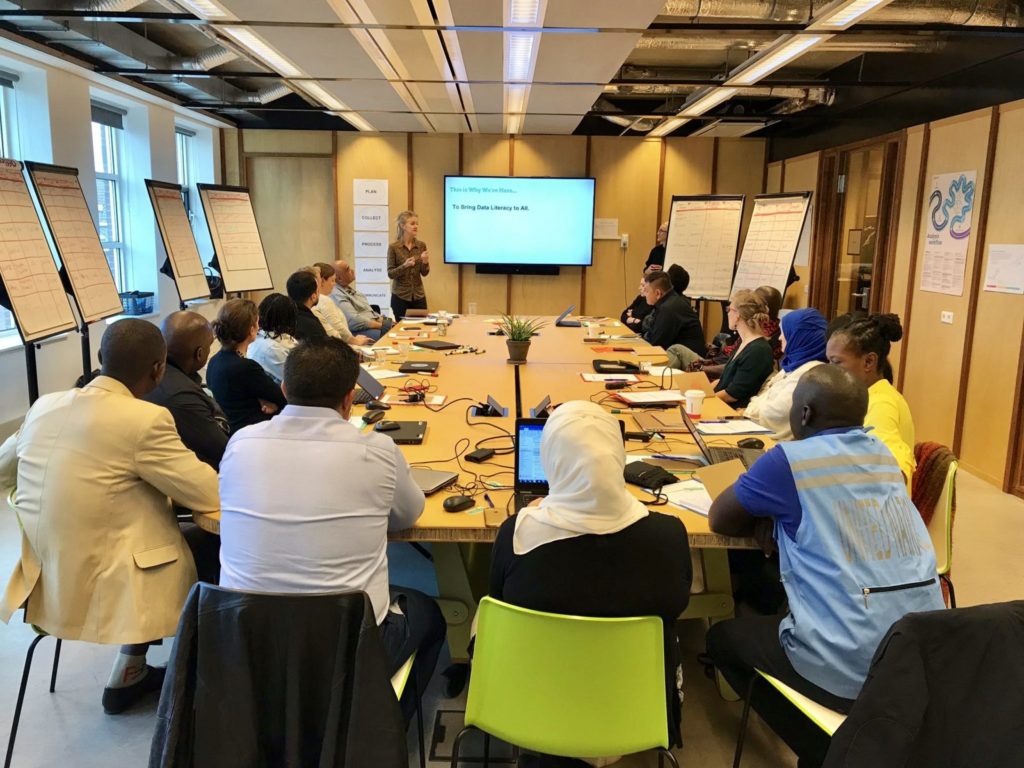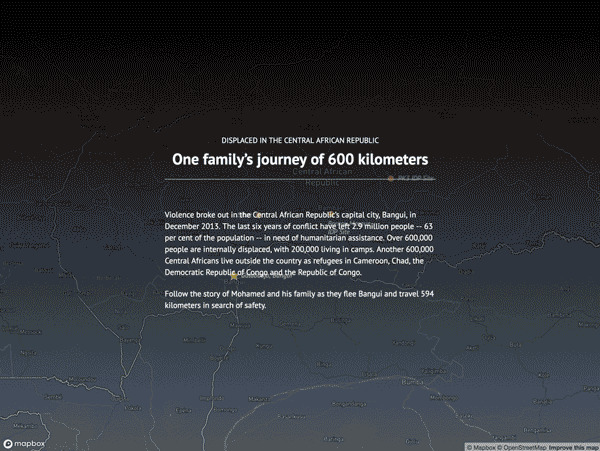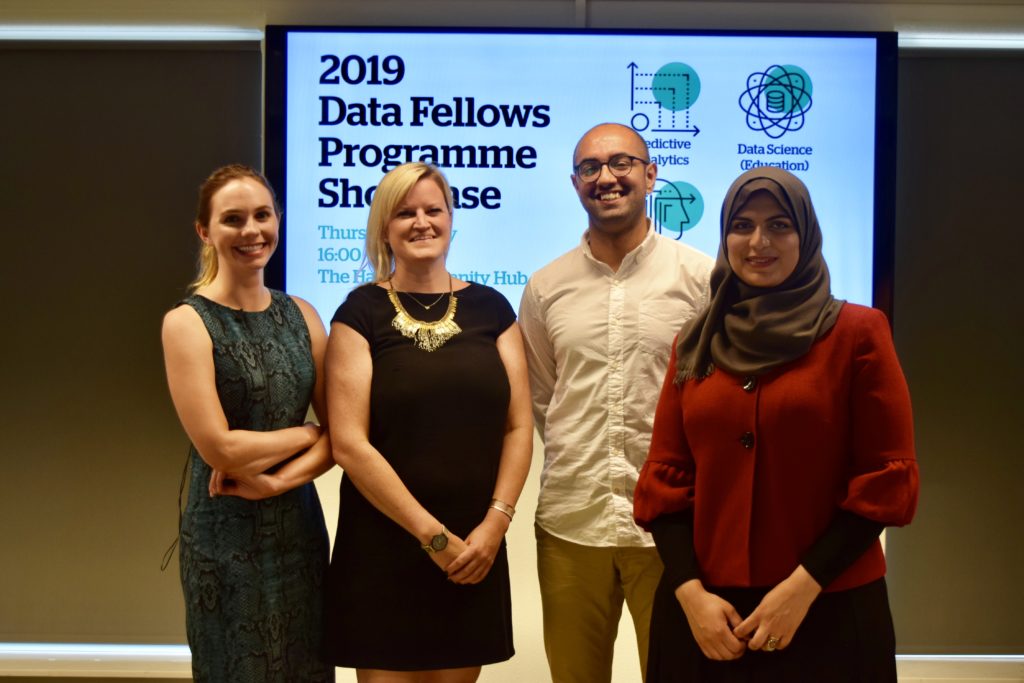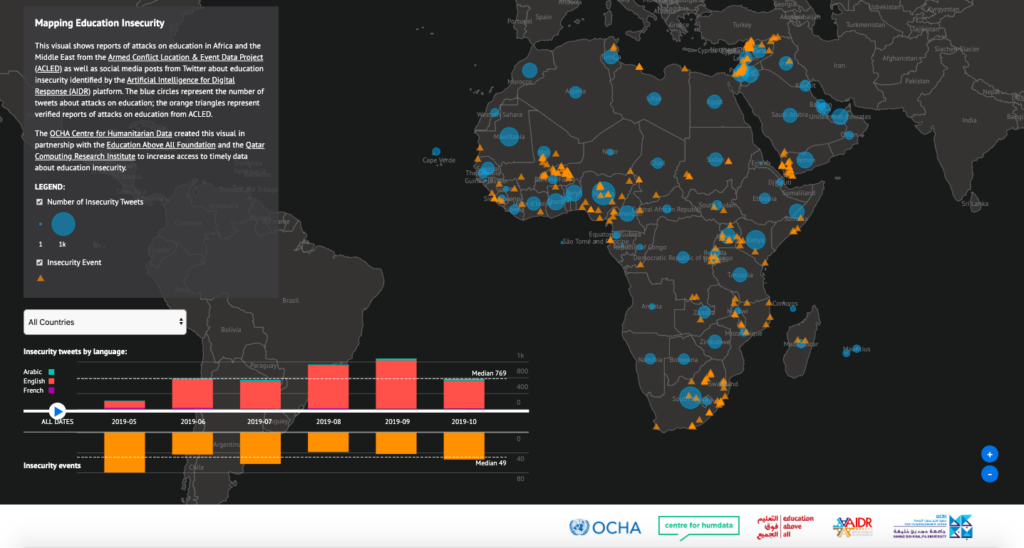Share
Throughout 2019, the Centre for Humanitarian Data has been focused on increasing the use and impact of data in humanitarian response. Below we highlight some of the great work undertaken with OCHA staff and partners. We wish everyone a happy and successful 2020 and look forward to continued collaboration.
The Centre’s Flywheel: Data, Partnerships, Trust
As the Centre enters its third year of operations, we have been reflecting on our work and our role. In the coming months, we will be developing a next phase plan to take us beyond our initial start-up period into a steady state with a focus on four areas: data services, data policy, data literacy and predictive analytics. We want to create more value for our community year-on-year and ultimately increase the use and impact of data in the humanitarian sector through data, partnerships and trust. Read more.
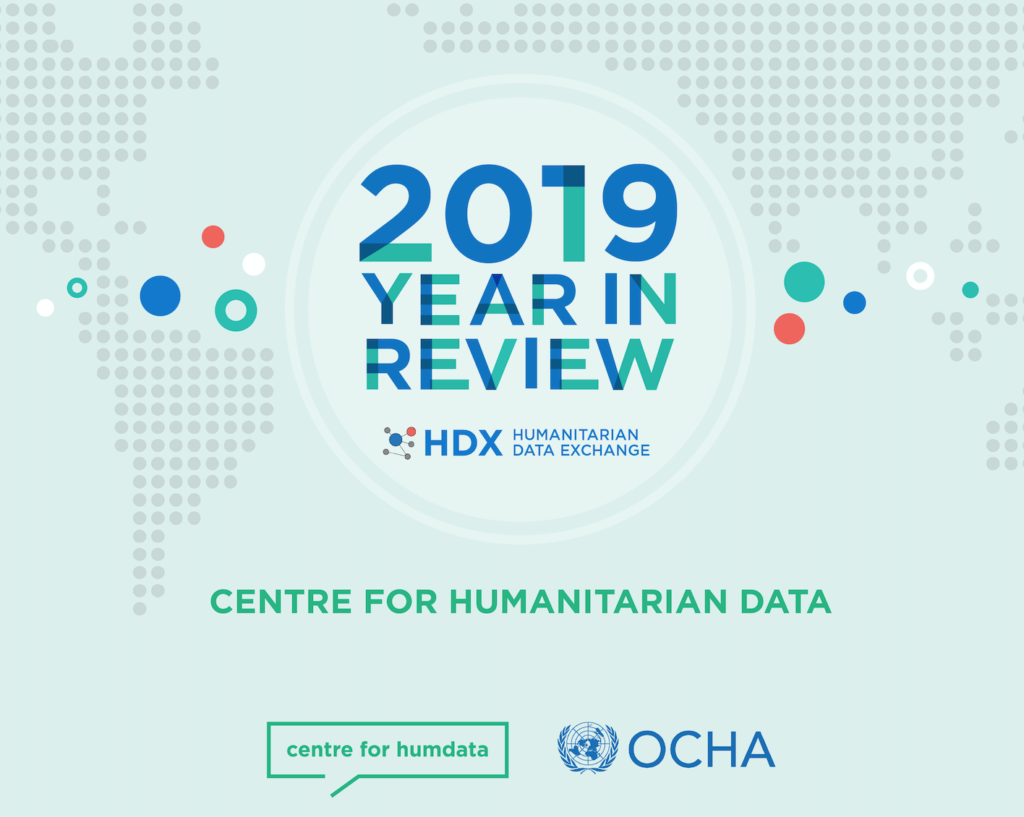
Growth of HDX in 2019
HDX now hosts over 17,300 datasets shared by 250 organizations. These datasets were downloaded over 154,900 times in 2019. Throughout the year, the site was visited by over 610,000 people from almost every country in the world. As a result of this growth, we have become even more focused on the often overlooked and underappreciated task of maintenance. In 2020, we will be working with partners to fill the HDX data grids for priority crises — they are around 50% complete.
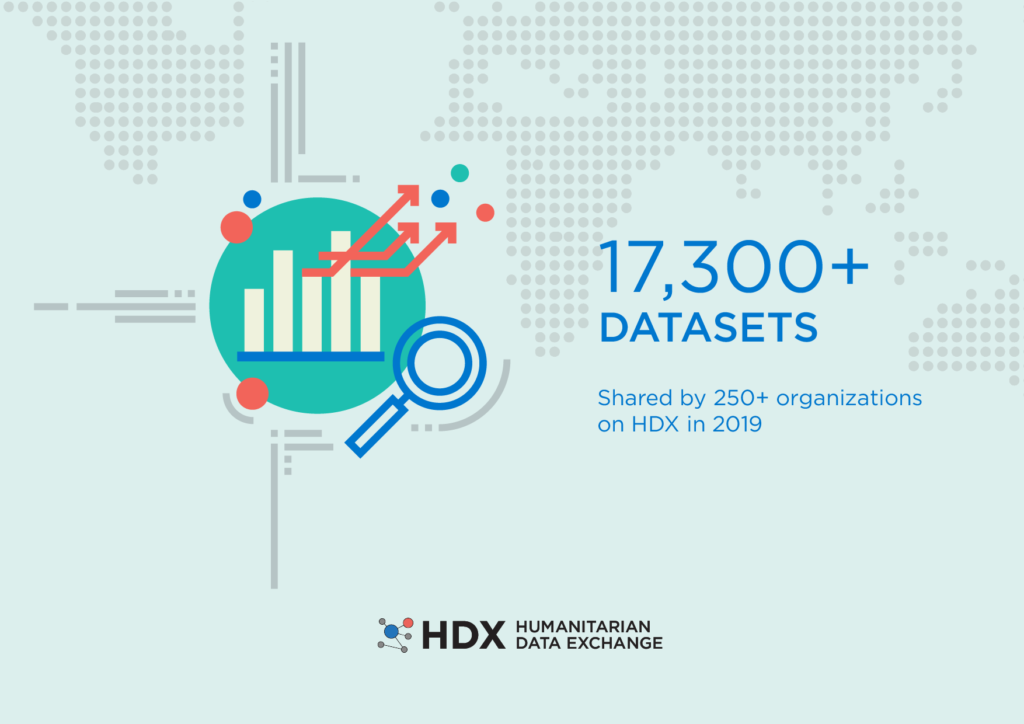
A New Workstream for Predictive Analytics
In September, the Centre launched a new workstream for predictive analytics which is focused on modeling, peer review, and community building. Our team lead for predictive analytics provided his take on how the humanitarian system can reliably use models to trigger anticipatory action. To provide quality assurance, we developed a Peer Review Framework for Predictive Models in Humanitarian Response which we are piloting with a number of partners. (Note: The Framework was updated in May 2021 and can be found here.) We are also creating a catalogue of predictive models with basic information on ‘who is doing what, where’ to improve transparency.
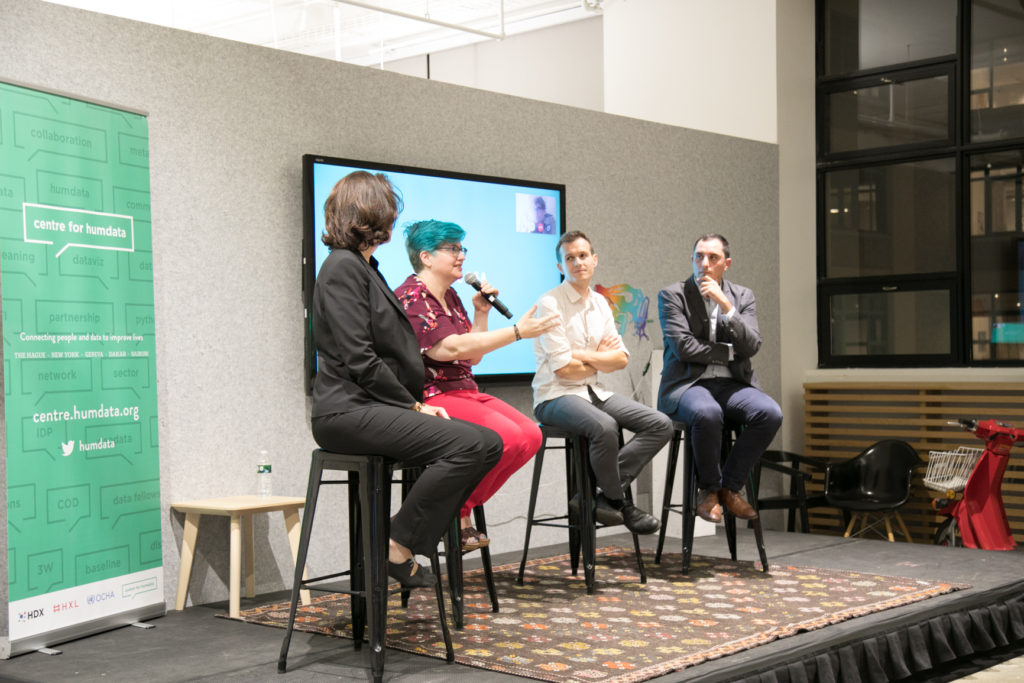
Data Literacy Foundation Programme
The Centre’s data literacy work is focused on increasing the capacity of humanitarians to access and use data. In October, a group of OCHA Humanitarian Affairs Officers from across our field offices gathered in The Hague for a weeklong ‘data bootcamp’. This crash course is one component of our new Data Literacy Foundation Programme which runs for three months and includes remote training and mentoring for non-technical humanitarians. Read more.
Making Progress on Data Responsibility
We released a working draft of the OCHA Data Responsibility Guidelines in March 2019 to help staff navigate the technical and ethical aspects of working with humanitarian data. (Note: As of October 2021, the OCHA Data Responsibility Guidelines have been finalized and can be found here.) We also published technical guidance notes on data incident management and statistical disclosure control. In May, the Centre held an event on data responsibility at Wilton Park in the UK which led to a call for collective action to make progress on data responsibility in the sector.
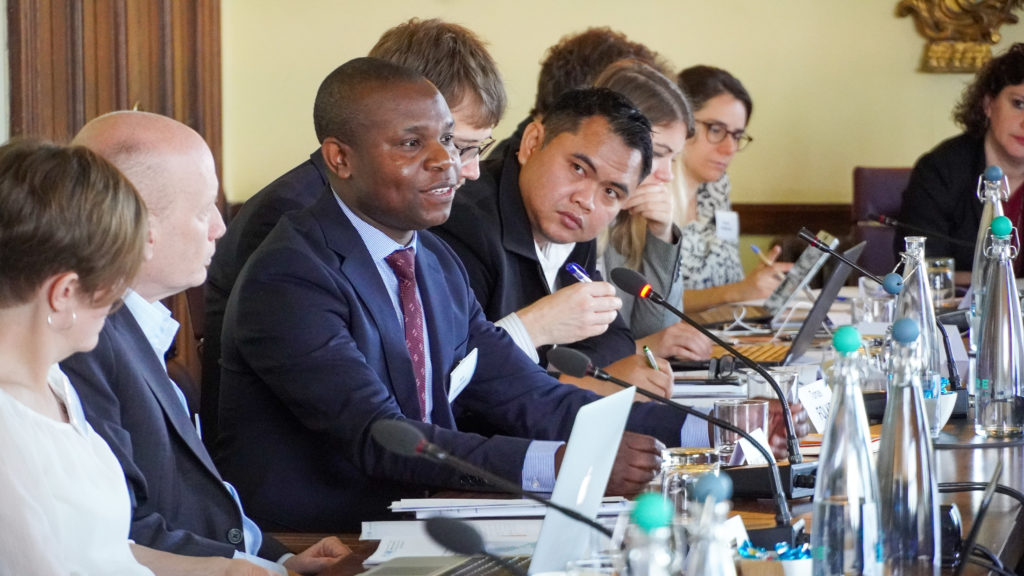
Data Story: Displaced in CAR
Follow the story of Mohamed and his family as they flee Bangui and travel in search of safety. This data story connects people to the experience of one family as it travels 594 kilometers during conflict. Years of conflict in the Central African Republic have left millions of people in need of humanitarian assistance. Take a look.
The Data Fellows Programme
The second year of the Centre’s Data Fellows Programme took place in The Hague in June and July 2019. The fellowships focused on data science (education data), statistics (disability data), predictive analytics, and business strategy. Watch the summary video and read their insightful blogs on the outcomes and uptake of their projects.
Progress with Data on Education in Emergencies
The Centre worked to increase access to data about education in emergencies through a partnership with the Education Above All Foundation. There are now over 2,000 education datasets on HDX. We also partnered with the Qatar Computing Research Institute to analyze almost 9 million tweets to identify discussions about education insecurity in the Middle East and Africa. The goal is to look for correlations between actual education insecurity events and discussion about attacks on education on social media. Read more.
Community Interviews
Thank you to the many organizations that have contributed to our progress this year. As part of our Community Q&A series, we had the opportunity to talk to some of our closest partners about their work with data: Humanitarian OpenStreetMap Team, MapAction, Pulse Lab Jakarta and the Qatar Computing Research Institute.

Coverage of the Centre
In transit over the holidays? Listen to a couple of great podcasts about the Centre’s work: 1) Kenn Cukier from The Economist’s Babbage podcast interviewed Stuart Campo during our event on data responsibility at Wilton Park in May; and 2) Chine Labbe from Cornell Tech’s Good Code podcast visited the Centre in The Hague over the summer and spoke with several staff members about our work. Also learn more about anticipatory action and the role of predictive analytics in this interview with the Head of OCHA in The Telegraph.
To see how far we have come, have a look at our takeaways from the Centre’s first year and top highlights from 2018.
